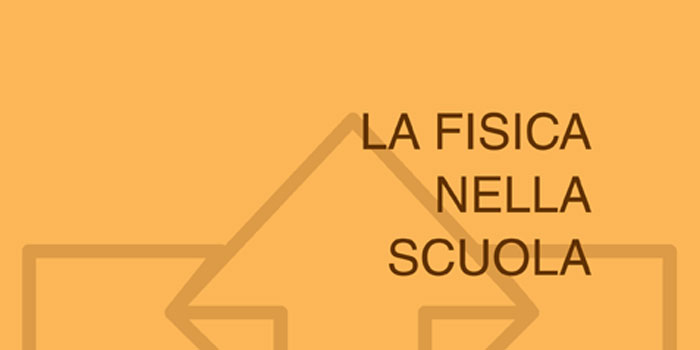Articoli rivista
Didattica
 Anno XXV - n.2 - aprile/giugno 1992
Anno XXV - n.2 - aprile/giugno 1992 Il pendolo, con un certo realismo
The classical pendulum experiment is discussed in order to show the approximations leading to possibly significant differences between theory and experiment. The way to minimize uncertainties in the data-taking procedure is also discussed. […]
 Anno XXVI - n.1 - gennaio/marzo 1993
Anno XXVI - n.1 - gennaio/marzo 1993 Il pendolo di Foucault come ausilio didattico (Traduzione da Physics Education, vol. 26, n. 2, Marzo 1991, a cura di Salvatore D’Agostino)
The Foucault pendulum can be an excellent teaching aid. For example, it can be used to measure the latitude of the place you live in. This article shows how the students and the entire population of a small village were involved in a physics experiment and discusses some modifications to the original design for an updated repetition of the experiment. […]
 Anno XXIV - n.3 - luglio/settembre 1991
Anno XXIV - n.3 - luglio/settembre 1991 Il problema del nucleare e la scuola: un’ulteriore indagine
In order to inquire about knowledge and awareness of young people about the risks connected with the uses of ionizing radiation, we have submitted to various groups of first year university students a questionnaire. Results obtained are examined, also on the light of the different types of secondary school previously attended. […]
 Anno XLIII - n.4 - ottobre/dicembre 2010
Anno XLIII - n.4 - ottobre/dicembre 2010 Il riordino dei Licei e le Indicazioni Nazionali
A short history of the changes brought in secondary education in Italy by increased school autonomy, with special attention to their consequences on the teachers’ role when teaching physics. […]
 Anno XLV - n.2 - aprile/giugno 2012
Anno XLV - n.2 - aprile/giugno 2012 Induzione elettromagnetica: un possibile percorso didattico
Physics textbooks describe electromagnetic induction phenomena with the simple calculation rule called ‘flux law’ but Maxwell’s general law of electromagnetic induction law, based on the vector potential and invariant for Lorentz’s transformations, shows that the induced emf is the consequence of time variations of the vector potential and the motion of electric charges in a magnetic field. […]
 Anno XLVI - n.1 - gennaio/marzo 2013
Anno XLVI - n.1 - gennaio/marzo 2013 Integrali con la bilancia, da un’idea di Enrico Fermi
Beyond his scientific works and lectures Enrico Fermi left a lot of simple ideas and suggestions that show his unique way of applying the procedures of one science to another science. His idea of using physics to solve the mathematical problem of estimating the value of a definite integral with a sheet of paper and a scale is described and applied to the simple case of estimating π. […]
 Anno XLV - n.3 - luglio/settembre 2012
Anno XLV - n.3 - luglio/settembre 2012 Introduzione alla fisica delle onde con Google Earth
We show how the illustrations of various natural phenomena visible in Google Earth can be used in school not only for teaching geography and geology but also for introducing the physics of waves. […]
 Anno XLIV - n.2 - aprile/giugno 2011
Anno XLIV - n.2 - aprile/giugno 2011 Introduzione alla relatività ristretta in un Istituto Professionale serale
Relativity theory is seldom presented to the Italian highschool pupils. During a Master in Didactics of Physics the author experimented teaching the fundamentals of the theory to adult students in a vocational highschool. The design, the implementation and the results of the experience are described and briefly discussed. […]